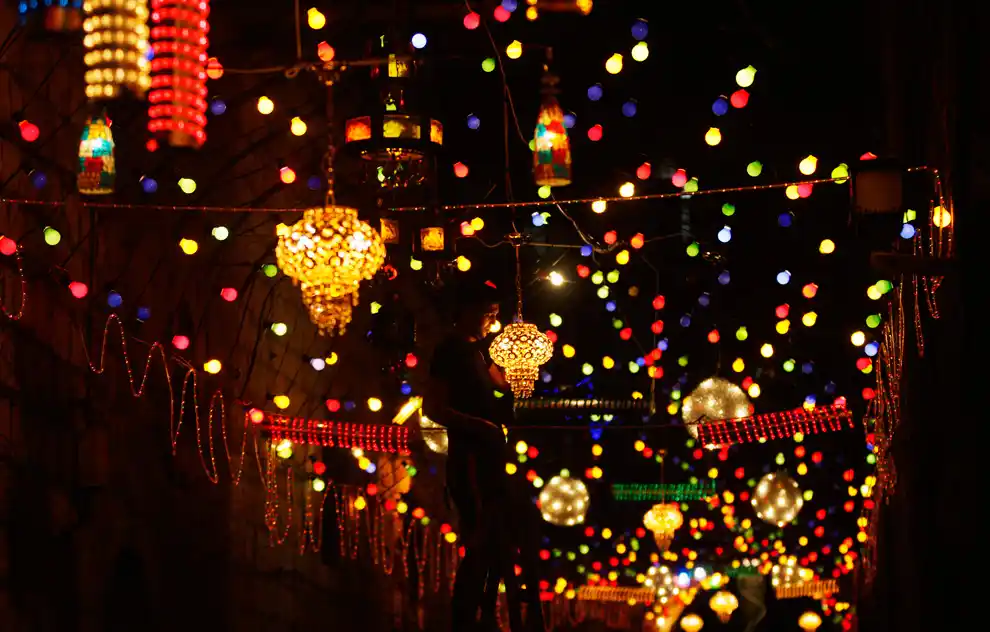Ramadan is an integral part of Arabic culture and is widely celebrated throughout the Arab world. The month-long observance is marked by fasting, prayer, and reflection, and is a time of intense spiritual renewal for Muslims. Here are some ways in which Ramadan is celebrated in Arabic culture.
Historical perspective of Ramadan
The blessed month of Ramadan is considered the best month ever, and Allah – the Almighty – singled out this month with many advantages and made the wages in it double, and cast his love into the hearts of the servants.
As Muslims in all parts of the earth rejoice at the advent of this great month, prepare to receive it by various means and methods, and rejoice in living in its shadows, moreover fasting during Ramadan is one of the pillars of Islam, and it is obligatory for Muslims.
The month of Ramadan is called the month of the Qur’an; In it, it was revealed to our Holy Prophet Muhammad – may Allah bless him and grant him peace, and he used to study it with Gabriel – peace be upon him – during the blessed nights of Ramadan, and it is also called the month of resurrection because this worship abounds in it.
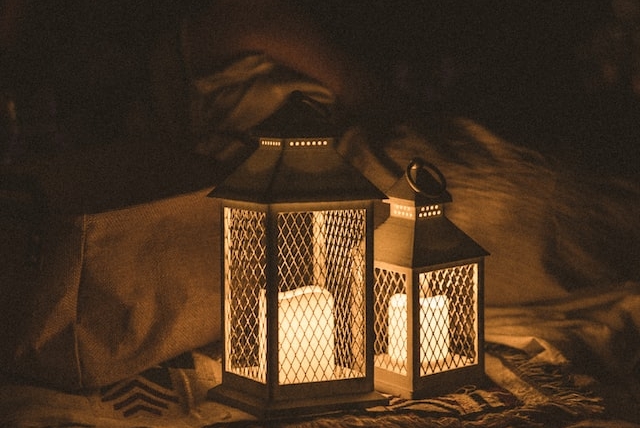
There is a great concern among Muslims to keep up every night during Ramadan. And that is the hope of earning the great reward, and they compete to multiply the acts of worship, and to turn to Allah Glorified and Exalted be He with hidden hearts. May Allah Almighty honor them by freeing them from the flames, and that is on every night of his nights.
Also, Ramadan in the Arabic culture enjoys great importance and multiple celebrations, as there are some features that distinguish this holy month from other Arabs, where many rituals are held in what is known as the traditions of Ramadan in the arab world.
Recommended reading: From Fasting to Praying: A Beginner’s Guide to Ramadan
The importance of Ramadan in Islamic tradition
Allah favored the month of Ramadan over the rest of the months of the year, and that includes the preference for worship during it, Allah gives glad tidings to His fasting servants of Paradise when they increase their good deeds. Because Allah multiplies their good deeds in Ramadan.
Just as Allah helps them by weakening the plot of Satan, and what increases the reward and forgiveness of sins is fasting Ramadan in the belief that it is obligatory and in anticipation of the reward and reward from Allah, and in pursuit of the Sunnah of the Prophet – may Allah bless him and grant him peace – in it.
And what increases the reward for fasting is that Allah Almighty excluded him from determining a reward for him, but rather made his reward returned to him., this is because it is a secret between the servant and his Creator. As the slave leaves everything for Allah’s sake; That is why Allah made his reward special for him. The Prophet – upon him be peace and blessings be upon him – said:
(كُلُّ عَمَلِ ابْنِ آدَمَ يُضَاعَفُ، الحَسَنَةُ عَشْرُ أَمْثَالِهَا إلى سَبْعمِئَة ضِعْفٍ، قالَ اللَّهُ عَزَّ وَجَلَّ: إلَّا الصَّوْمَ، فإنَّه لي وَأَنَا أَجْزِي به، يَدَعُ شَهْوَتَهُ وَطَعَامَهُ مِن أَجْلِي)
Doubling the good deeds in this month is in quantity and quality. As Allah – glory be to Him – multiplies the good more than multiplying it in other days other than the days of Ramadan, and it becomes ten times more than it, and doubles the greatness of its reward, and the Umrah in it is equivalent to an argument, or an argument with the Prophet – may Allah bless him and grant him peace -; for saying:
(عُمْرَةً في رَمَضَانَ تَقْضِي حَجَّةً أوْ حَجَّةً مَعِي)
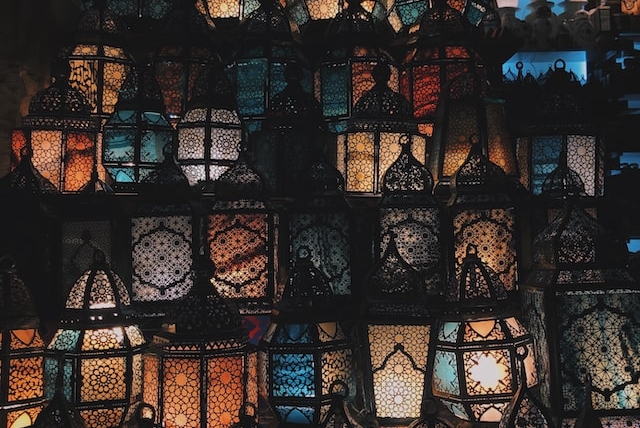
Ramadan traditions in different parts of the Arab world
With the diversity of the cultures of the Arab and Islamic countries during the holy month of Ramadan, there are many traditions of Ramadan in the arab world, which makes Ramadan completely different from Ramadan in other cultures:
Egypt
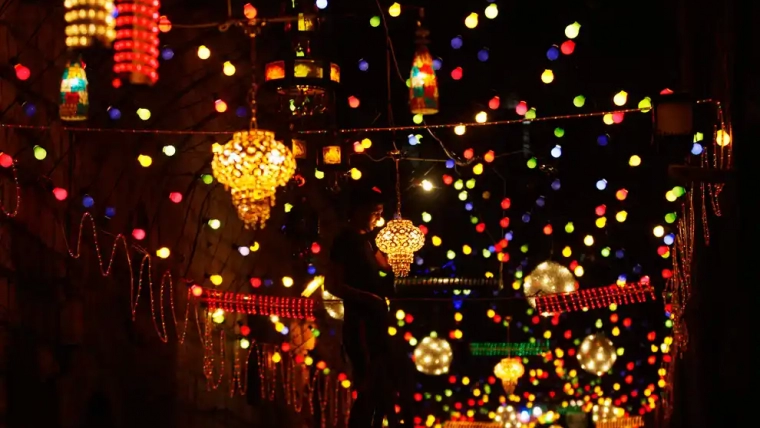
Egypt is characterized by Ramadan manifestations that differ greatly from other Arab countries, especially in the continuation of the Mesaharati until now, which is the person who beats the drum an hour or more before the dawn call to prayer.
To wake the citizens up for the suhoor, the most famous manifestations are the Ramadan lantern, which went through several stages until its forms multiplied at the present time, and it bears the names of political, artistic, and Ramadan personalities.
Saudi Arabia
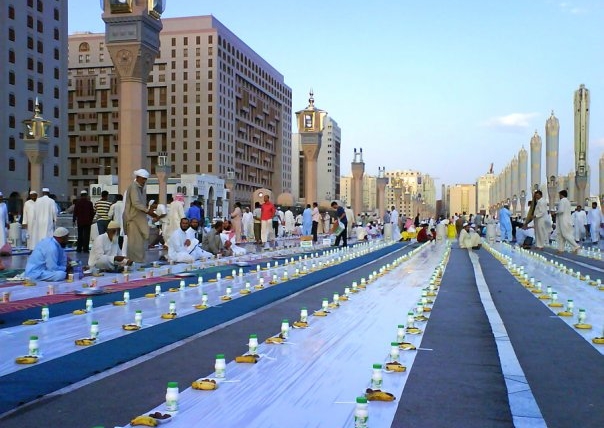
Ramadan in the Kingdom of Saudi Arabia has a special spiritual atmosphere, perhaps not found in other parts of the Islamic world, this is because those homes contain the Two Holy Mosques, and they are one of the most important places in the hearts of the believers. As it’s One of the most important social customs recognized in the Kingdom is the Iftar tables, decorating homes with lantern, as well as the Iftar tables
Syria
- Lanterns began to appear in recent years in Syria, after their spread in soap operas and advertisements.
- Expressions of welcoming the month of Ramadan spread on decorative papers.
- The habit that continues until now is firing the Iftar cannon, and dishes of food are exchanged for Iftar in Ramadan between neighbors.
Bahrain
The manifestations of Ramadan in Bahrain are different from the months of the year, as special dishes appear on the Ramadan table, and family members are committed to sitting and breaking the fast together, while “Ramadan Ghabqas” abound, which are meals served after Tarawih prayers.
Tunisia
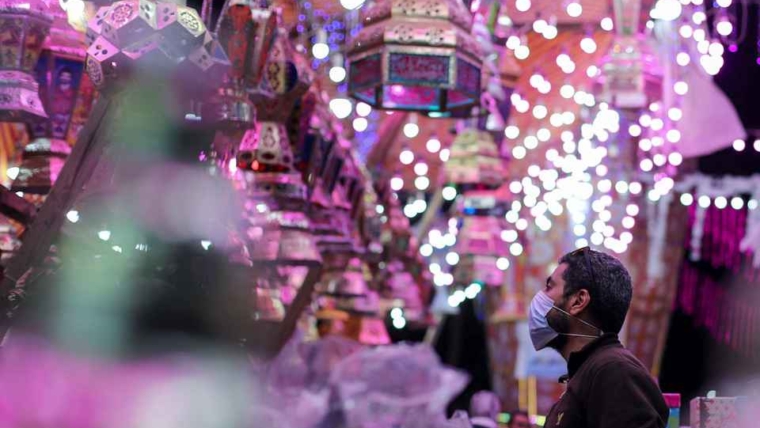
- An atmosphere of celebration welcomes the holy month of Ramadan in Tunisia, so the streets, houses and minarets of mosques are decorated with lanterns and ribbons.
- After the Tawareeh prayer, believers sit in circles to recite verses from the Holy Qur’an and listen to their explanation.
- Ramadan festivals in Tunisia are held in tents, adding an air of magic to this holy month
Iraq
- Preparations for Ramadan begin with shopping for food, especially in Baghdad, where it is a tradition to buy food from the “Sharja Market”.
- A spirit of love and closeness prevails in society thanks to the many visits of relatives, friends and neighbors.
- Ramadan is accompanied by a traditional game called “Al-Muhaibis”, which is played in cafes.
In The End
Ramadan is an important and integral part of Arabic culture. From breaking the fast with iftar to night markets and special Ramadan foods, the month of Ramadan is a time of celebration, reflection, and spiritual renewal for Muslims in the Arab world.
Recommended reading: Ramadan Preparation Checklist: Get Ready for the Holy Month
FAQs
How do Arabs celebrate Ramadan?
The holy month of Ramadan is characterized by traditions common to countries around the world, such as fasting, charity and prayer, as well as practices that differ from one culture to another.
What do Muslims do on the first day of Ramadan?
The festive manifestations of this holy month do not differ, and they do not decrease from the first day of the beginning of the month until the last day of this holy month. As Muslims prepare for this day with the intention to fast and prepare breakfast, and the day is not devoid of acts of worship such as reading the Holy Qur’an.

